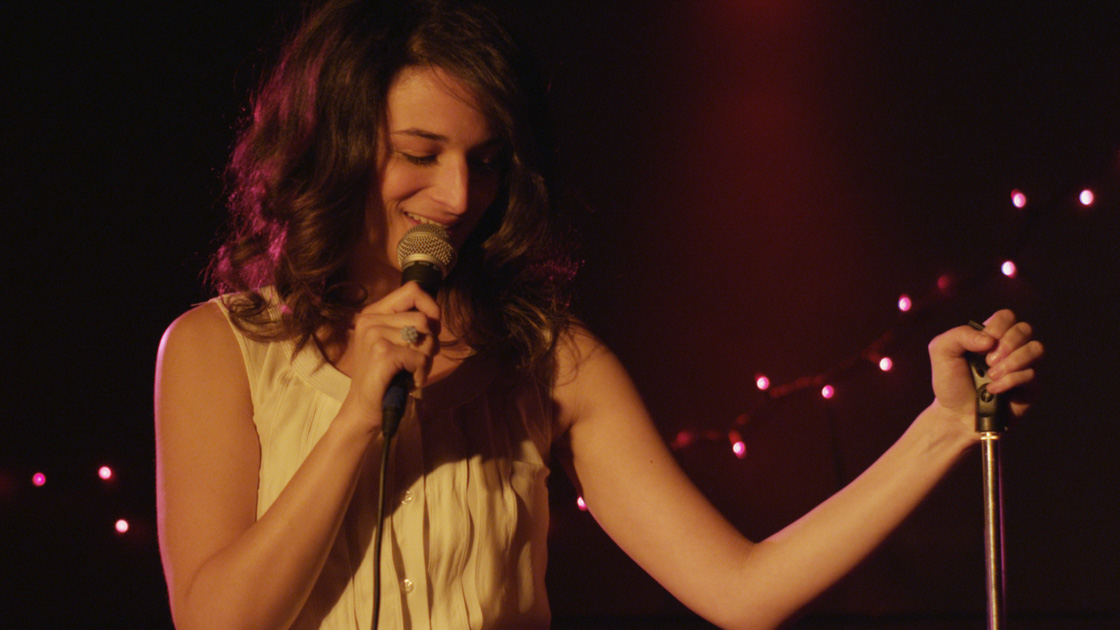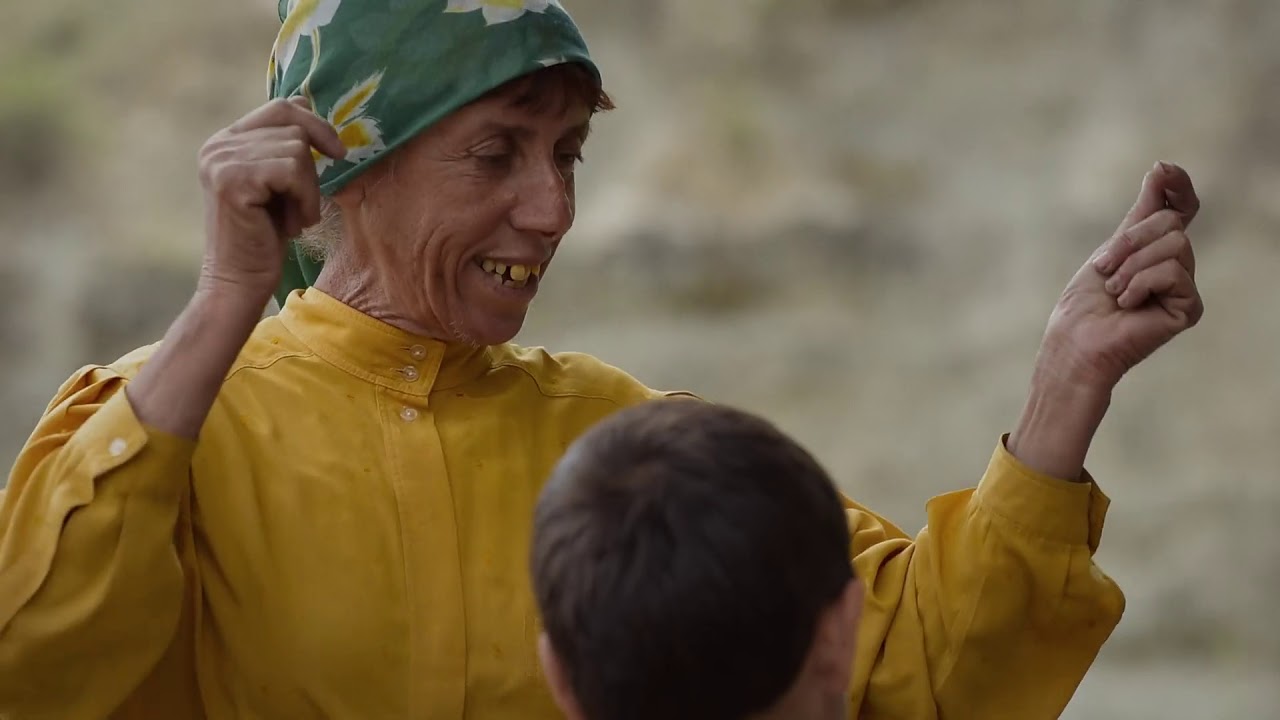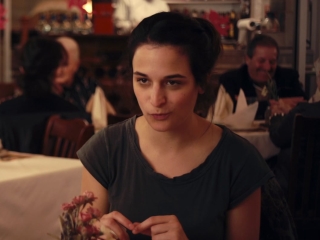Obvious Child
 Scott Pfeiffer
Scott Pfeiffer  Thursday, June 26, 2014 at 05:03PM
Thursday, June 26, 2014 at 05:03PM 
Here's a rom-com with a twist. It asks, what if you dropped a dose of reality into the formula, imagining you got pregnant from one of those fun, drunken one-night stands we see in the movies? That "you" is crucial: this project is conceived (if you will) as an expression of female experience in the most personal of ways. This is just one of the ways that "Obvious Child" is the anti-"Knocked Up." In the wake of her unplanned pregnancy, this woman decides to have an abortion.
This movie is a vehicle for the talents of Jenny Slate, who, like her character, Donna, is a young stand-up comic, and now we may add "comic actress" or better yet, simply "actress." Donna is a New Yorker two years shy of 30. We meet her on stage, and immediately we get a sense of her act: she makes a crack about the odd discharge she inevitably finds on her panties by the end of the day. Here the picture is working in that relatively new cultural space where women are allowed to be honest and funny about bodily functions. Allowed to be a mess, allowed--in a word--to be human. This is a space perhaps carved out by Lena Dunham in work like "Tiny Furniture" and "Girls." ("Louie" is another reference point, with its honest look at the world of New York stand-up from the point of view of a sweet, albeit male, mess.)
Donna is crass and crude, but she gets over because she is also sweet and funny, and because of her delivery, that rather childlike voice an amusing contrast with the rude stuff coming out of her mouth. There's something birdlike about her. Donna observes from the stage that people always say she looks just like Anne Frank. You cringe as you chuckle and you think: yes, she rather does, at that.

Donna puts her personal life into her act--her art--with little or no consideration of the impact she has on the people in her life. It's one reason her boyfriend (Paul Briganti) breaks up with her. Then she loses her day-job at one of those great, endangered bookstores, the kind that hangs out a shingle proclaiming it to be your spot for "Un-oppressive, Non-imperialist Bargain Books." It's run as a labor of love, if not, unfortunately, a going financial concern, by a kind, bespectacled, greying fellow (Stephen Singer), who is almost apologetic when he tells her it's time to close up shop.
At a bar she meets Max (played by Jake Lacey with fine comic timing). It would be an understatement to say he is not of her demimonde, her world of sarcastic comics which includes her gay friend (Gabe Liedman) ("gay friend" is one of the genre conventions the movie plays with) as well as David Cross in a funny, gross cameo, making himself repellent as a hirsute up-and-comer who asks her around to his place: you could say he's hitting on her, yet he seems finally too self-absorbed even to do that. Max is straight-laced, wholesome, and yet he is possessed of a self-satirical air. He doesn't take himself too seriously, and he has a droll sense of humor.
Max and Donna bond over drinks; he accidentally farts in her face as they pee in the street. He's horrified, but she loves it. Back at the apartment they bounce joyously around to the rolling, tribal, downshifting drums of Paul Simon's "Obvious Child." The way she dances, she's a goofy life force. I liked the sweet way Max regards her while he leans against the wall, letting a smitten smile play around his face. He's thinking she's kind of lovable, really.
We know what happens as a result of that night. This movie is going to feel personal for many women, and there must be many, many details a male viewer won't pick up on. Karolyn hipped me to some of them. When Donna waits for the results of her pregnancy test with her best friend (Gaby Hoffman), Karolyn told me that many women have found themselves on both sides of that situation. There's a good, true scene where Donna, crying, climbs into bed with her mom (Polly Draper), a business professor with whom she has a difficult relationship, and confides in her, as she can't--won't--with her loving dad (Richard Kind, who makes muppets). It took Karolyn to point out that last detail to me.
Gillian Robespierre, the film's writer and director, has expanded "Obvious Child" into her first feature from a short film she made in 2009. The story is a good fit for Jenny Slate's persona. We get the feeling that the character of Donna is a collaboration, in more than the usual sense, between the director and actor. Robespierre and Slate understand Donna's world. The bars look and feel right, down to the graffiti-covered dive bathrooms. While we cannot say at this point that Robespierre uses the camera expressively or that she has any particular visual style beyond a sort of TV competence, she has achieved something perhaps harder to get: tone. At once crude and bittersweet, the tone suits this material, which is after all in some ways about growing up. Like Donna, Robespierre and Slate find the funny in a situation, a decision, that is no laughing matter.
And also one that is worthy of a few tears, quite apart from any moralizing, quite apart from whether the decision is right or wrong. For Donna it is unquestionably the right decision. And yet it's okay, perhaps even necessary, the tears. I don't think they could be put into words, these tears, even if she tried to explain. These wordless moments at the abortion clinic, both before and after the procedure: I think they are the finest moments in the film. They are the evidence for Slate as an actress, as well as of the compassion of Robespierre and Slate. I think of the women in that recovery room afterwards, glancing at each other wordlessly, sometimes meeting each other's eyes, sometimes just lost in her own thoughts. Each has her own story. What a profoundly personal thing it is. It's worth it for a male viewer like me to put myself in Donna's shoes, even if only for this hour and a half, even if I could never really imagine being there.
At one point Donna tells Max that when it comes to most romantic comedy films, she just doesn't connect. It's a nice meta critique in a picture that plays with rom-com conventions. As it turns out, though, Slate and Robespierre have made a good one, albeit with a crude honesty that nudges the genre out of sweet fantasy.

Rating: ****
Key to ratings:
***** (essential viewing)
**** (excellent)
*** (worth a look)
** (forgettable)
* (rubbish!!)
no stars (utter shite)


Reader Comments (1)
L'angoisse due à la dimension infime du pénis d'un mâle peut le dévaster.